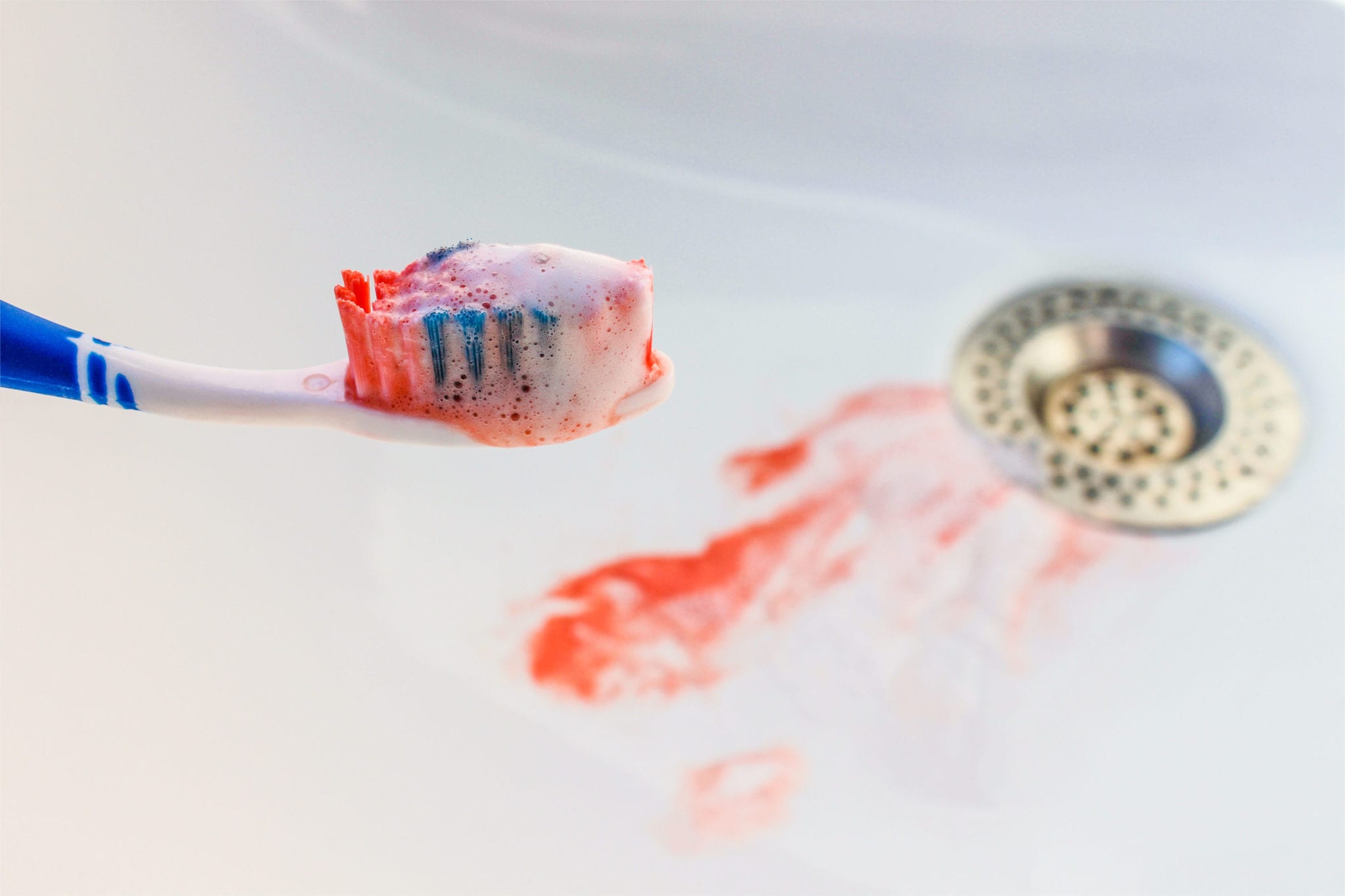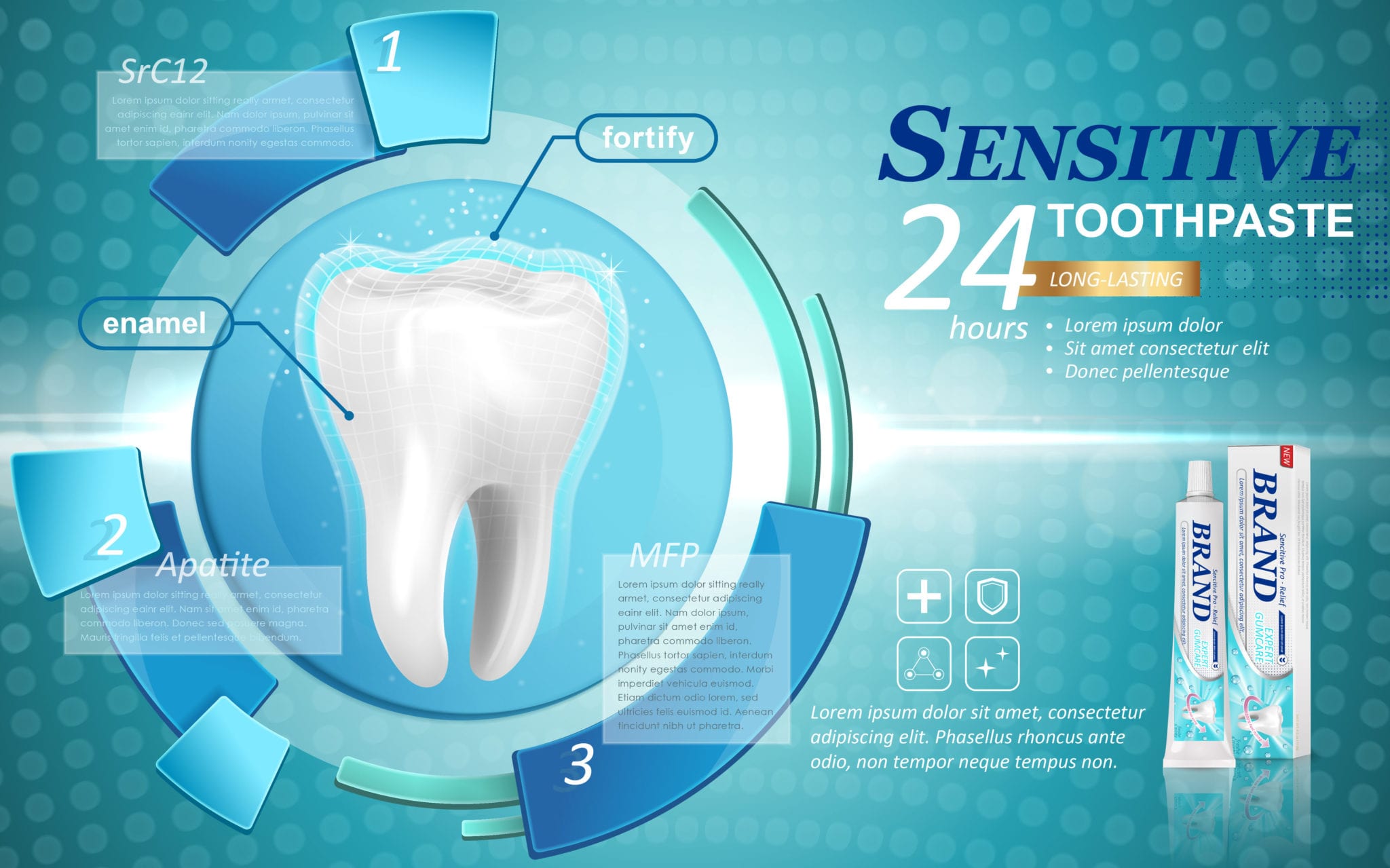
Tooth sensitivity is a very common condition, affecting an estimated 45 million Americans. This is generally experienced as a tingly feeling or flash pain in one or more tooth, either throughout the tooth or on certain surfaces. This may occur constantly or intermittently, and can also be triggered by hot or cold beverages, or by cold air.
There are a number of treatment options to alleviate tooth sensitivity. The appropriate treatment plan is dependent upon the causation. Home remedies and treatments may be a good first line of defense for minor tooth sensitivity, but we recommend seeing your dentist for sudden or severe tooth sensitivity, or for sensitivity that does not improve with home treatment. You should also mention minor tooth sensitivity at your next dental checkup.
Causes of Tooth Sensitivity
Tooth sensitivity is caused by exposure of the dentin, or inner surface of the tooth. This is generally a result of weakened or thinning enamel, or of recession of the gum line. A number of conditions can contribute to this. Addressing these root causes can generally helps to alleviate tooth sensitivity or prevent the condition from worsening.
Normal aging and thinning of enamel. As we age, the enamel on our teeth naturally thins with normal wear and tear. This can lead to increased exposure of the dentin, and cause tooth sensitivity. Treatments used to strengthen enamel, discussed below, can help in these cases.
Gum recession. Gum recession, or gingival recession, is a condition in which the gum line recedes, exposing the roots of the teeth. Tooth sensitivity may be one of the first symptoms of gum recession and causes discomfort, but gum recession can ultimately lead to a greater risk of tooth decay and loss.
Consumption of acidic liquids. Acidic liquids, such as soda and coffee, can cause the tooth enamel to thin faster than it otherwise would. Limiting consumption of these beverages and drinking soda through a straw may help to prevent or alleviate tooth sensitivity. Treatments to strengthen enamel may help repair this damage.
Bruxism. Tooth grinding, or bruxism, wears down the surface of the teeth, and in severe cases can even result in tooth chips or fractures. This may cause tooth sensitivity, which is generally felt in all of the teeth. In this case, treating bruxism through means such as night guards may relieve tooth sensitivity.

Brushing teeth too hard. Brushing teeth too hard may cause enamel loss or gum recession, resulting in dentin exposure. When you brush, be sure not to press too hard. A good measure of this is that brushing teeth should never be uncomfortable, or cause any gum bleeding. Ask your dental hygienist if you have any questions regarding proper brushing.
Chipped or fractured tooth. A chipped or fractured tooth occurring due to injury or long-term bruxism is likely to result in exposure of dentin and subsequent tooth sensitivity. This should be repaired as soon as possible to prevent further damage or decay to the tooth.
Dental treatments. Certain dental treatments, such as teeth whitening, dental cleanings, orthodontics, or root restorations may lead to increased tooth sensitivity. This is generally temporary, and goes away on its own. However, if tooth sensitivity after dental work is severe or lasts for more than a few days, contact your dentist.
Cavities. Tooth decay can result in increased tooth sensitivity or pain. Your dentist will check for cavities through an oral exam and x-ray. Repairing tooth decay through restorations such as crowns, fillings, or root canals will relieve tooth sensitivity or pain caused by cavities.
Defective fillings. If fillings are leaky, this may result in exposure of the dentin and subsequent tooth sensitivity. Generally your dentist will check any fillings in a sensitive tooth to ensure that they are intact, and replace or repair defective fillings.
In-Office Treatments for Tooth Sensitivity
Assuming that the above causes have been ruled out, there are a few treatments your dentist can offer to help with tooth sensitivity. In-office treatments are generally aimed at strengthening the enamel or repairing damage to the enamel in order to decrease the exposure of dentin.
Fluoride varnish may be applied to weakened areas to strengthen enamel. An all-over fluoride foam gel treatment may also be used. Application of bonding agent over damaged areas can also help to seal the dentin surface.

At-home treatments for tooth sensitivity
If your tooth sensitivity is caused by brushing too hard, the use of a very soft toothbrush and following proper brushing instructions can provide relief for sensitivity. The use of toothpaste designed for sensitive teeth or high-fluoride toothpaste may also be helpful in soothing tooth nerve endings or strengthening tooth enamel, respectively.






